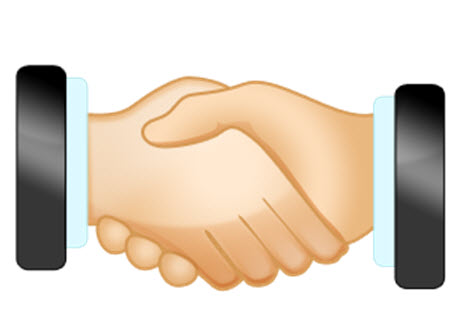 NFC technology can be used for more than mobile payments
NFC technology can be used for more than mobile payments
NFC technology gets a great deal of attention for its uses in mobile commerce. The technology has been a cornerstone of mobile payments for some time, but can facilitate other services beyond this realm as well. As NFC technology becomes more popular, and more prone to criticism, those interested in NFC are looking for new ways to make use of it. Steve Gurley, president of Pyrim Technologies, is keen to encourage the use of NFC technology outside of mobile commerce, or at least raise awareness of its other capabilities.
Peer-to-peer communication facilitated through NFC
According to Gurley, NFC technology has three uses beyond mobile payments. The first is peer-to-peer communication. This capability is beginning to attract more attention, especially as technology giant Samsung begins marketing this aspect of their new NFC-enabled products. NFC technology allows for devices, such as smart phones, to share information without being connected by wires. Two such devices can share information to one another digitally, allowing smart phone users to share songs or contact details with each other.
Security could be controlled through NFC chips
Another use of NFC technology is secure card emulation. Hotels often rely on keycards to control access to rooms and some services, a practice that is growing increasingly common on university campuses around the world. NFC technology can make this practice more efficient, according to Gurley. By embedding an NFC chip into a card, access can be granted in a quick, efficient, and more secure manner, removing the need for traditional methods of security. NFC technology can also act in a wide range of read/write practices and facilitate the exchange of information easily.
NFC technology expected to continue playing a large role in mobile commerce
NFC technology is likely to continue playing a major role in mobile commerce, but will not be restricted to this industry for long. Already, the technology has become an emergent part of numerous industries, especially in those that put a high value on interaction with consumers. Marketing is currently the most popular platform for NFC technology, outside of mobile commerce.

 n testing new ways to allow consumers to make online transactions securely. The financial institution envisions a platform that will protect consumers from the risks they face in the online world while also providing them convenient service. The company’s PayPass platform has become somewhat popular in mobile commerce, but MasterCard is looking to expand the capabilities of this platform and has set its sights on QR Codes. MasterCard has teamed with ING Group, a Dutch bank, to launch a trial project for its new initiative in the Netherlands.
n testing new ways to allow consumers to make online transactions securely. The financial institution envisions a platform that will protect consumers from the risks they face in the online world while also providing them convenient service. The company’s PayPass platform has become somewhat popular in mobile commerce, but MasterCard is looking to expand the capabilities of this platform and has set its sights on QR Codes. MasterCard has teamed with ING Group, a Dutch bank, to launch a trial project for its new initiative in the Netherlands.